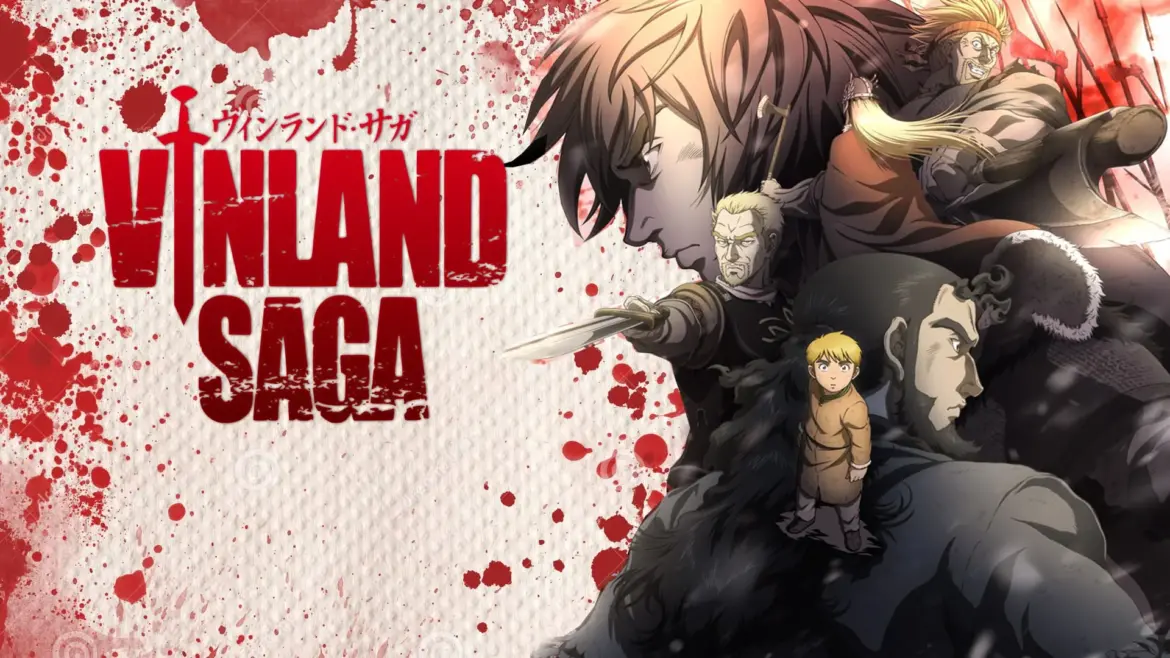Vinland Saga is one of the most difficult to review media works I’ve encountered. I was already about to write a negative review of the show midway to season two, but as I wrote out my thoughts and reflected, several realizations came.
This project takes massive risks. When the first season was an orgy of violence, entertaining with its depiction of medieval war and political scheming, the second season shows Thorfinn as a farmer. He cultivates crops the entire season while reeling with an existential crisis that’s taken the wind out of his sails. He has changed from a raging child soldier into a clinically depressed adolescent. The contrast is so stark, I struggled to enjoy much of the very long season two.
Now, when reviewing media, applying your own filters is essential. You apply your own evaluations in discussing a media work, as otherwise your review will have no flavor nor meaningful perspective. It is not useful feedback for the creators either that reviewers abstain from giving frank feedback on how they personally experienced their works.
Honest and direct feedback is essential. But a reviewer who doesn’t also consider what the project itself is aiming at and how it goes about it, evaluating how successful it is at going its own direction, is not doing it properly.  And this is why Vinland Saga is so complicated to talk about. Because the creators make such ballsy decisions, you’re challenged to think its message. The running pacifist theme that contrasts with the cynically pragmatic medieval geopolitics, whether that’s masterfully told or not, I cannot say. The first season was much easier to digest, because the drama was simple. The king of England was scheming to kill his own son, while the morally ambiguous Askeladd was teaching Thorfinn harsh lessons about life while on the battlefront. Their relationship was strange, as Thorfinn followed Askeladd into battles and executed his orders as his subordinate, despite openly stating his intentions to kill him as revenge.
And this is why Vinland Saga is so complicated to talk about. Because the creators make such ballsy decisions, you’re challenged to think its message. The running pacifist theme that contrasts with the cynically pragmatic medieval geopolitics, whether that’s masterfully told or not, I cannot say. The first season was much easier to digest, because the drama was simple. The king of England was scheming to kill his own son, while the morally ambiguous Askeladd was teaching Thorfinn harsh lessons about life while on the battlefront. Their relationship was strange, as Thorfinn followed Askeladd into battles and executed his orders as his subordinate, despite openly stating his intentions to kill him as revenge.
The first season was highly digestible. There were surprises, but every plot development and character made sense and was intuitive. There was a lot of action and drama. Great pacing that kept you at the edge of your seat. The final episode was amazing, I liked it. Big running themes came to a climactic close.
The second season is what-the-fuck material. The story subverted many of my expectations, making it difficult to predict what would happen next, and not always in a good way. Many times it felt like these creators have no sense of direction, only for them to make their point in a thoughtful manner that blindsides you. The final confrontation between Canute, who is now fully subscribed to medieval realpolitik, and Thorfinn whose journey into a pacifist while working years as a farmer, is the culmination of these clashing themes coming together. It’s the climax of both seasons.
And I’m not sure if it was brilliant or dumb. The creative decisions made in this show are so polarizing, I don’t believe in a definitive answer. It’s a very special experience, showcasing a Japanese understanding of Norwegian vikings, Icelanders, Danes, the British, a depiction rife with Japanese bias. It’s an interesting cultural exchange, because these vikings often feel like samurai living according to the bushido code. It’s a completely flawed depiction, but undeniably interesting. So you cannot measure whether Vinland Saga is successful from your own perspective alone, you have to also judge it in relation to its goals.

I think the studio succeeded overall, but is this entertaining? Thorfinn in season two is a static character who barely flinches when he’s punched and stabbed. Is that cool? Is the depiction of these situations realistic or entertaining? It’s pushing these limits, making the second season even more of a tightrope walk than the first. You’re constantly expecting the show to fail, because of the huge risks it’s taking, but somehow it doesn’t. It almost does, but then it finds its balance again.
There is a very poignant subplot at the latter half of the second season. A couple who were separated by a war. The husband was captured, leading the woman to become a slave of a land owner. When the man returns to reunite with his wife, she’s already pregnant to another man, Thorfinn’s master. The story is harrowingly tragic, showing the husband’s failure to protect his wife, which was his motivation to go to the front. She wasn’t waiting for him.
I’m very reluctant to judge this show, when it’s only just begun. Yes, even after two very, very long seasons, the story is clearly just setting up. We didn’t even discuss what “Vinland” is in the first season, neither was it discussed until the final episodes of season two. Thorfinn develops this dream of living in a world where people are safe from war. And apparently, there is a physical place somewhere that could act as this safe haven. I assume next season we’ll finally get to see Vinland.
I will reserve my final judgement of this show until next season at least. I can recommend this anime, but be aware, the second season is a completely different experience from the first one.


